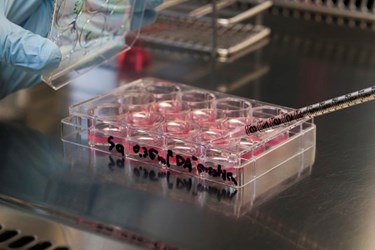Calimmune To Advance In HIV Gene-Based Stem Cell Study
0 General Document comments
0 Sentence and Paragraph comments
0 Image and Video comments
Calimmune To Advance In HIV Gene-Based Stem Cell Study
Clinical-stage HIV gene medicines companyCalimmune announced that it is ready to advance in its HIV stem cell gene modification study based on positive results from a first group of participants.
The company conducted a Phase I/II clinical trial investigating a protein called CCR5, which is the culprit accused of enabling HIV to infect healthy cells. Blocking the expression of the suspect protein may provide normal cells a shield against HIV, which could help the immune system remain strong and functional.
In the first phase of the study, 4 HIV positive patients received an infusion of their own blood stem cells with mature T cells. The T cells have been modified to carry a gene that blocks CCR5 production. As a precaution against the virus building resistance, the research team used a secondary mechanism that prevents the virus from binding to the cells.



Hooray! We can genetically alter a person’s own stem cells!

When will we find out if these patients have been cured in the style of the “Berlin patient?”
The patients in the trial have previously used anti-retroviral drugs but stopped treatment due to side effects or treatment fatigue. Following a review of safety data from Calimmune’s Data Safety Monitoring Board (DSMB), the company received approval to proceed to the next stage of the trial.
Louis Breton, CEO of Calimmune, said, “We are very excited and encouraged by this development. This recommendation from the DSMB is an important step in bringing this potential one-time therapy to the patients, and takes us closer to our ultimate goal of eradicating AIDS.”
Breton also thanked the California Institute for Regenerative Medicine (CIRM) for its continued financial support for the trial. C. Randal Mills, President and CEO of CIRM, said, “While still early in clinical development, this announcement demonstrates real progress towards this mission. The accomplishment of Calimmune’s team is a great example of how CIRM partnerships are working to impact patient’s lives today.”
The second batch of 3 to 4 patients will receive Cal-1 along with a preconditioning regimen to help increase the efficacy of the therapy. The trial will be conducted in San Francisco and Los Angeles and will investigate safety, ease of use, approach feasibility, and any side effects of the treatment in HIV/AIDS patients.
General Document Comments 0










0 archived comments